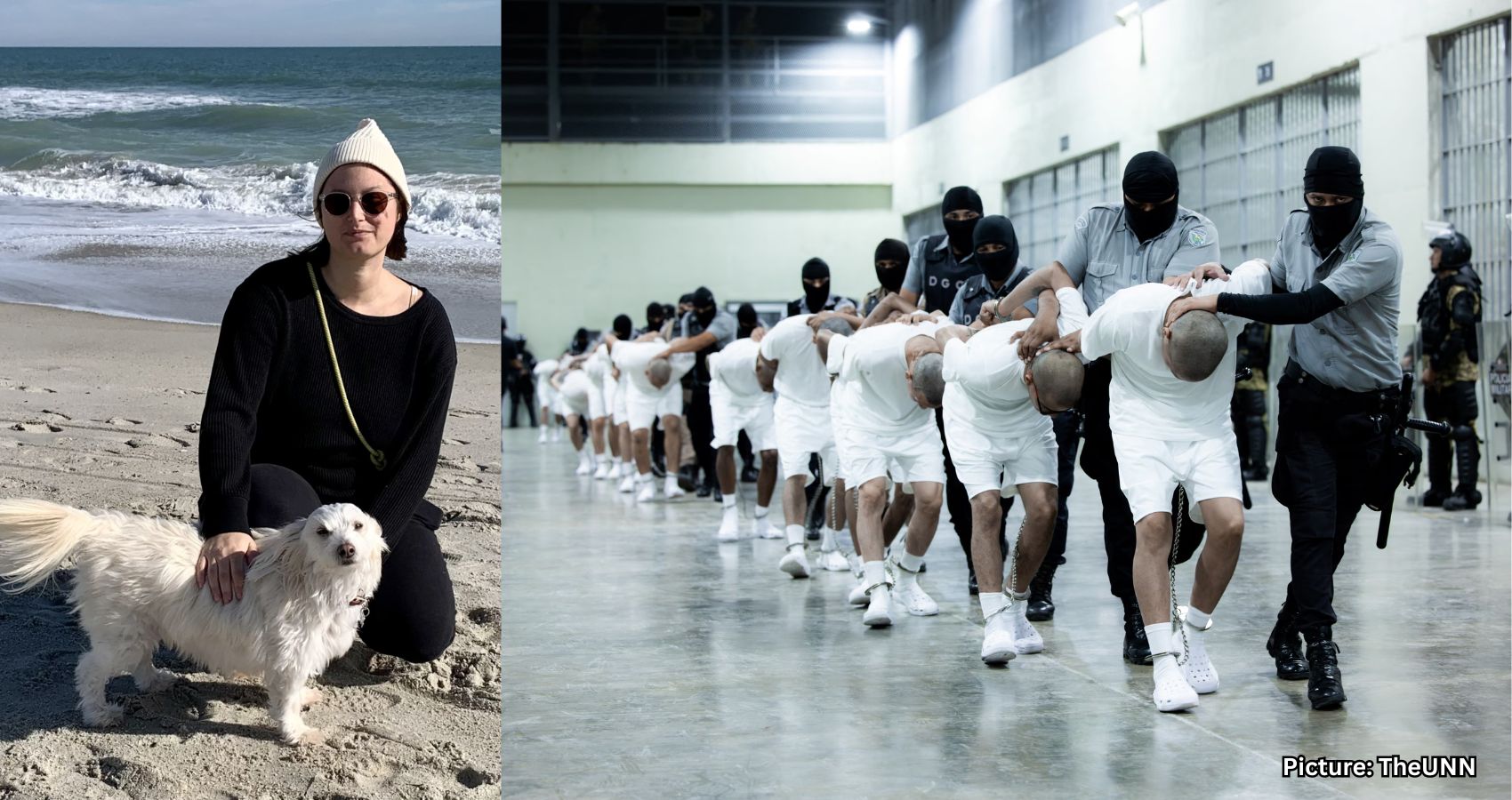Kaelyn’s unexpected romance with Yapa, an asylum seeker from Venezuela, has turned into a desperate fight against his deportation, leading her into significant debt for legal support.
Last summer, Kaelyn found herself at a Latin club in Wilmington, North Carolina, when a charming stranger asked her to dance. Initially reluctant, she was drawn in by his genuine demeanor. “If anyone else had asked, I would’ve said no, but Yapa is so genuine,” she recalls, using a pseudonym to protect his identity. What began as a dance blossomed into a deep friendship and romance, but it would soon lead to a desperate battle for Yapa’s freedom.
Yapa, who fled violence in Venezuela in 2022, was an asylum seeker with a legal work permit. He attended regular court hearings and worked as a delivery driver, aspiring to obtain his commercial trucking license. As their relationship grew, Kaelyn became an integral part of his life.
They celebrated Thanksgiving together, with Yapa bonding with Kaelyn’s family, even playing pool with her father. Her affection for him was evident as his sisters affectionately called her “reina,” a term of endearment meaning queen. They spent their time watching movies and overcoming language barriers with translation apps and Kaelyn’s college Spanish. Each morning, Yapa would text her to ask about her day, solidifying their connection.
Before meeting Yapa, Kaelyn rarely considered immigration policy. Originally from Connecticut, she had relocated to Wilmington for work in film location scouting. However, the political climate shifted dramatically after President Trump’s election, which sparked her concerns about the treatment of asylum seekers.
“People would tell me, ‘Oh, you’re overreacting,’” she says. “This isn’t 1930s Germany. And I’d say, ‘Yeah, but it’s starting to feel that way.’ Looking back now, while people were telling me I was being dramatic, I was actually underreacting.”
On February 22, 2025, Kaelyn’s worst fears materialized when Immigration and Customs Enforcement (ICE) agents arrived unexpectedly in the early morning hours while Yapa was preparing for work. Without explanation, they handcuffed him, confiscating his ID and work permit—documents that have not been returned. They provided no information about his destination, only that he was being deported.
Kaelyn was devastated when Yapa’s sister called to inform her of his detention. Just the night before, Yapa had stayed with her, and she had hoped to keep him close as a U.S. citizen, believing she could better advocate for his rights. “I couldn’t explain it, but I was so emotional,” she recalls of their final night together. “And he told me, ‘There’s no reason for them to take me.’” Now, they faced an urgent need to act to save him.
Yapa was transported to Georgia’s Stewart Detention Center, where he faced allegations of gang affiliation with the Venezuelan gang Tren de Aragua (TdA) during a hearing two months later. “Shocking is not even the word,” Kaelyn says, recalling her reaction. “I was shaking.”
In a recent court filing, ICE admitted it has no evidence linking Yapa to any gang. However, a ruling from the Trump administration complicates the situation for immigrants like Yapa, who entered the country recently and are now struggling to secure their release from detention. Yapa could remain incarcerated for up to a year while his asylum case is pending, facing the grim possibility of deportation to a dangerous environment.
Kaelyn’s fear of the allegations against Yapa was palpable, knowing that if he were deported, he could end up in CECOT, a notorious prison in El Salvador known for its brutality. “I thought, I’m going to have to live the rest of my life knowing he’s in there, and there’s nothing that we can do to get him out of there,” she reflects. The thought of Yapa, along with many other innocent individuals, being imprisoned in what some describe as a modern-day concentration camp is an “atrocity,” she asserts.
The emotional and financial toll on Kaelyn has been immense. She has hired multiple attorneys to advocate for Yapa and has incurred significant debt due to legal fees. Meanwhile, Yapa is held nearly nine hours away from Wilmington, with limited access to phone communication. In April, attorneys from the American Immigration Council and the ACLU took on part of Yapa’s case pro bono. By May, they secured a ruling that prevents the Trump administration from deporting Yapa to CECOT or elsewhere based on the Alien Enemies Act without allowing him a fair chance to contest the TdA allegations. While this decision brought some relief, Kaelyn’s life has been drastically altered.
Conversations with her sister now revolve primarily around updates on Yapa’s case and the latest developments in immigration policy. “We can’t be happy when there’s literally a member of our family who’s been taken from us,” she says. “I’ll never let this go. The administration thinks they’re sowing fear—but they’re creating activists. You can’t destroy someone’s life and expect us to stay quiet.”
Source: Original article

